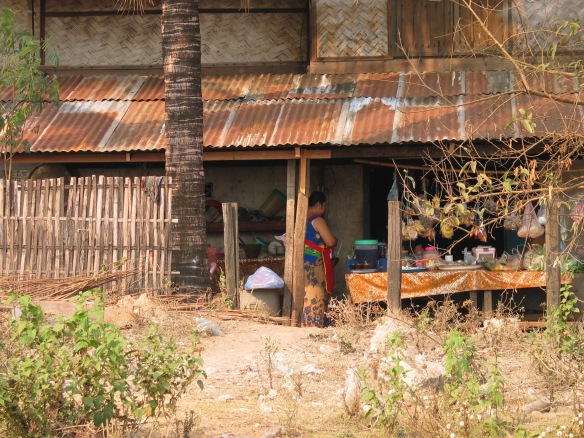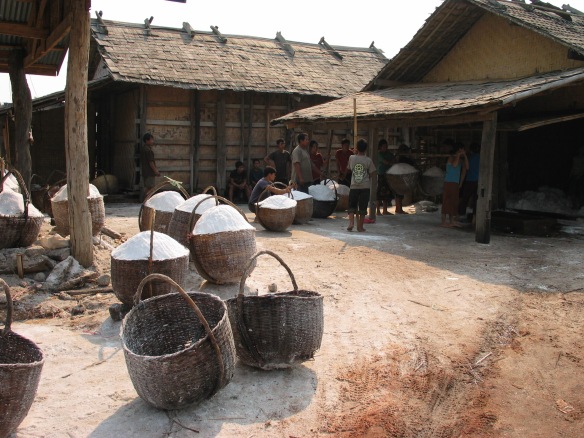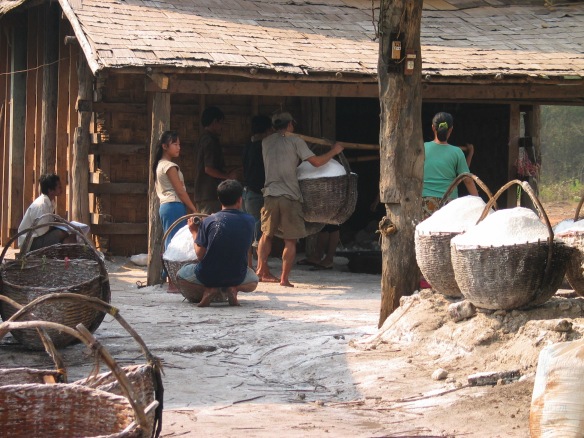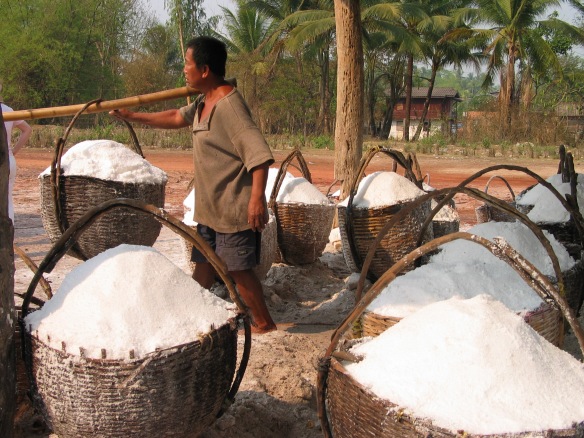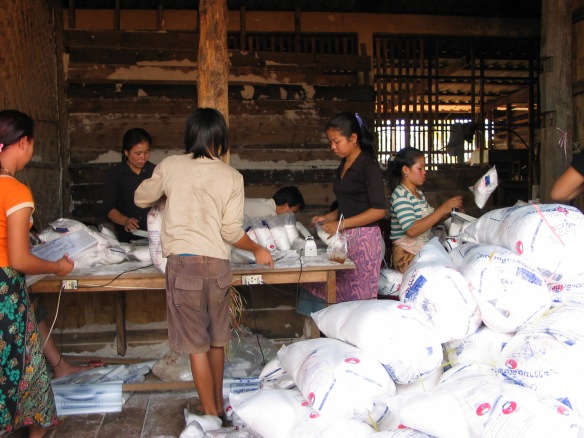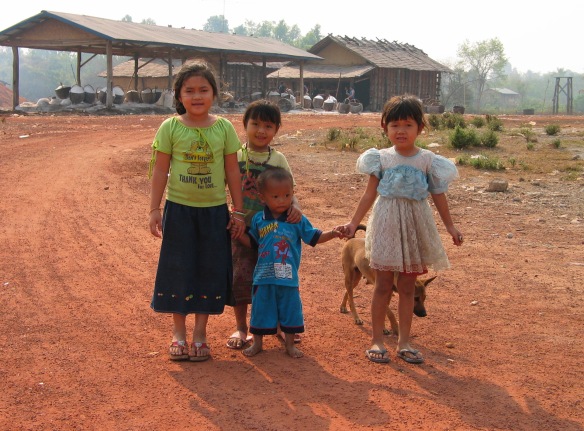 Author and journalist Mark Kurlansky was born December 7, 1948 in Hartford, Connecticut. He has written about oysters, cod, salt, salmon, milk and paper – among other topics. His writing is engaging and informative. I have copies of Cod: A Biography of the Fish That Changed the World (an international bestseller translated into more than 15 languages) and Salt: A World History. His book Nonviolence: Twenty-five Lessons From the History of a Dangerous Idea was awarded the 2007 Dayton Literary Peace Prize. In his honor I am reprinting the post I wrote after we visited a saltworks in Laos. – Jadi
Author and journalist Mark Kurlansky was born December 7, 1948 in Hartford, Connecticut. He has written about oysters, cod, salt, salmon, milk and paper – among other topics. His writing is engaging and informative. I have copies of Cod: A Biography of the Fish That Changed the World (an international bestseller translated into more than 15 languages) and Salt: A World History. His book Nonviolence: Twenty-five Lessons From the History of a Dangerous Idea was awarded the 2007 Dayton Literary Peace Prize. In his honor I am reprinting the post I wrote after we visited a saltworks in Laos. – Jadi
When we talk about salt, we talk most often of sodium chloride. This is NaCl, consisting of the elements sodium and chlorine.
There is a charming tradition in Germany of bringing a loaf of bread and salt to friends when they move into a new home. The saying is that if you have those two items in your house you’ll always survive. Bread and salt are still ceremoniously served to guests in parts of northern and eastern Europe.
Mark Kurlansky writes, “Loyalty and friendship are sealed with salt because its essence does not change. In both Islam and Judaism, salt seals a bargain because it is immutable… In Christianity, salt is associated not only with longevity and permanence but, by extension, with truth and wisdom. The Catholic Church dispenses not only holy water but holy salt, Sal Sapientia, the salt of wisdom.” [1]
Seeing the hard way salt is won from pits changed forever the way I think about this simple condiment.
We were staying for only a few days in Vientiane, the capitol of Laos, and spent a day with a guide and a driver to see a bit of the area. One of the spots we toured was a traditional salt harvesting town. A little settlement lives at and from the pits – and has burned down numerous times. Each time, they rebuild right next to the pits.
Salty waters are brought up from deep underground
and then boiled in open metal pans. Their burning fires glowed and sent off intense heat. The briny steam that rose felt like being in some strange circle of Dante’s Purgatory.
Once the water has boiled away the salt is gathered in baskets, weighed, and stored in a barn.
Workers then bag and tag the salt, preparing it for market.
Salt is a serious business. The salt from this mine is sent to the north where people still suffer endemic goiters.
I thought of the pits of hell, of work so demanding and hot that it left scars. Just being tied to a spot like this must bake you and make you hard. Or so I thought. Instead, I met workers doing their jobs in neatly ironed clothing. The women all had on jewelry. A group of little children trailed us everywhere, laughing and mugging as children do.
Since that day salt has tasted both sweeter and bitterer, or herber as the Germans say. And in that small word I hear the echo of the coming season, Herbst, Autumn. The summer is burning away and fall is coming. May your harvest tables everywhere include bread and salt.
NOTES: [1] Mark Kurlansky, Salt: A World History (Vintage Books, 2002), p. 7. ©2014 & 2021 Jadi Campbell. Previously published as The Salt Pits. More of Uwe’s pictures from Laos and his photography may be viewed at viewpics.de.
The Trail Back Out was honored as 2021 IAN Book of the Year Award Short Story Collection Finalist for the Independent Author Network. In addition, The Trail Back Out was an American Book Fest 2020 Best Book Award Finalist: Fiction Anthologies. The title story The Trail Back Out was longlisted for the 2021 ScreenCraft Cinematic Short Story Award. Broken In: A Novel in Stories was a semifinalist for the international 2020 Hawk Mountain Short Story Collection Award from Hidden River Arts, and is currently a Finalist for Greece’s international 2021 Eyelands Book of the Year Award (Short Stories).
Click here for my author page to learn more about me and purchase my books.


